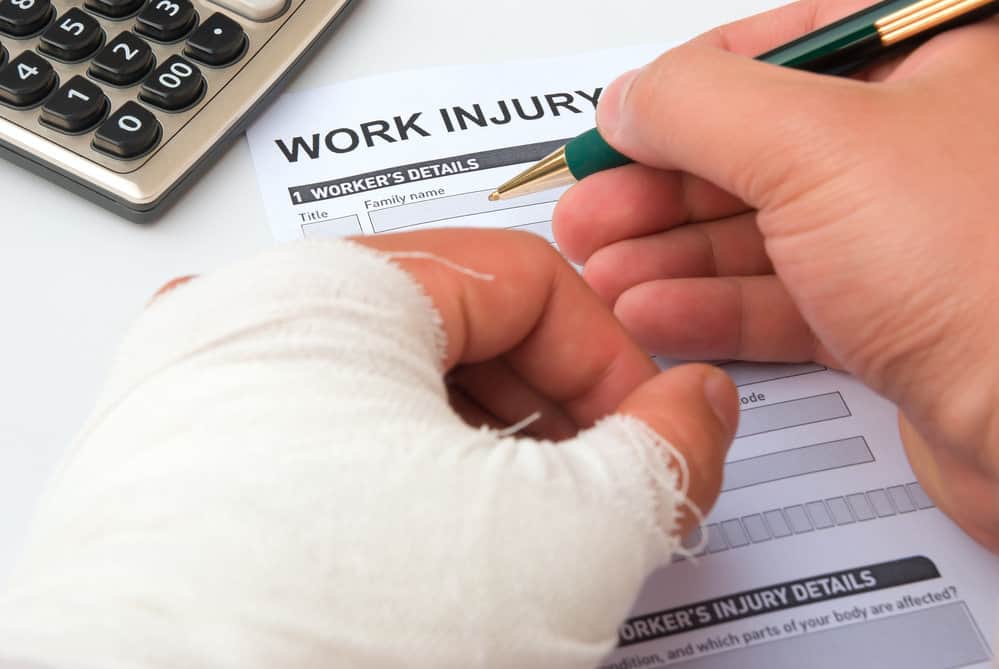About 84% of non-fatal workplace injuries involve slips, falls, tripping, overexertion, and contact with equipment or objects. These types of injuries inevitably involve time off work for recovery. According to the latest figures relating to 2020 from the U.S. Bureau of Labor Statistics, 2.8 workers of every 100 receive an injury at work, which has remained relatively stable since 2018.
After sustaining an injury at work, the steps you take are important, ensuring that you receive compensation for all your expenses.
Follow these steps to strengthen your claim and receive the compensation you deserve:
1. Notify Your Employer
After an injury at work, inform your employer or supervisor of the incident and fill in the necessary documents. Their job is to provide you with the required paperwork for reporting the incident, and they should offer further guidance.
In addition, most states have a specific deadline for injury reports so that you can claim worker’s compensation. The sooner you file this, the better because your employer might try to deny the accident happened at work.
Furthermore, discuss any safety concerns with your employer or supervisor to encourage changes that could save others from future injuries. The sooner dangerous conditions are addressed, the better for everyone.
2. Get Medical Attention
Every year, about 2.5 million workers visit the emergency departments of hospitals for work-related injuries. After reporting the incident to your supervisor, get immediate medical attention for your injury.
If your employer wants you to see a specific doctor, go to the one they refer you to. Furthermore, your employer must cover your travel expenses and fee to see the doctor or visit the hospital.
Under worker’s compensation law, you are eligible for a second opinion if you disagree with the first assessment of your condition. However, they do not always cover the cost, so keep proof of all out-of-pocket expenses related to your injuries.
It is essential to tell the doctor everything that happened at this first appointment and list all your symptoms. The law requires the doctor to note all the information for the record. Finally, ask the doctor to send a Health Professional’s Report to help build your claim with the worker’s compensation.
3. Collect All Evidence
Straight after getting medical attention, return to your workplace and collect significant evidence so that you don’t forget the details of how the accident happened. These details are easy to forget, and you don’t want the place to get cleaned out before you can record them. The best way to keep everything fresh in your memory is to take photographs and write details down.
Details to record:
- Place of the accident
- The date and time it occurred
- What you were busy with when it happened
- Names and contact information of witnesses in case your lawyer needs them.
4. File The Claim
The Workplace Safety and Insurance Board pay worker’s compensation, covering work-related injuries and diseases. You must file a claim right after an injury.
In some cases, when people develop an injury over time, for example, back pain that originates from a repeated motion, they may struggle to prove that work contributed to the injury.
However, if they can prove that work significantly contributed to the injury, they will get compensation. In cases of a workplace accident, you don’t want to miss the deadline, so file your claim quickly.
5. Get a Worker’s Compensation Lawyer
An experienced worker’s compensation lawyer licensed to practice in your state can help you get the money you deserve for your injury. Building a case from all the information and following the correct procedure enables you to get the compensation sooner.
A good worker’s compensation lawyer won’t promise you more than you can get but will give you a clear tally of what you can expect to receive. An experienced lawyer will build a strong case based on your best interests.
6. Record Your Expenses
Keep notes and receipts from all your expenses from the minute your injury occurred. Include the days of work you missed to claim the replacement payments from worker’s compensation. Furthermore, keep a record of out-of-pocket expenses for doctor’s appointments, medications, and treatments like physiotherapy.
Also, keep track of the mileage made to meet all these appointments to help your lawyer calculate how much you spent.
Bottom Line
Workplace injuries are not always serious, but they are common. Slips and falls, machinery related-injuries, and lifting injuries are among the most frequent types of accidents. Whatever workplace injury caused your injury; you deserve compensation.
The sooner you tell your employer and inform the worker’s compensation, the faster you can get compensation. In addition, keeping a record of how the accident happened and all the money you spent on your recovery ensures you don’t suffer a financial setback until you can work again.
Finally, don’t forget to voice your concerns to your employer about anything that could prevent similar injuries to your colleagues in the future. Employee safety should be everyone’s top priority!


